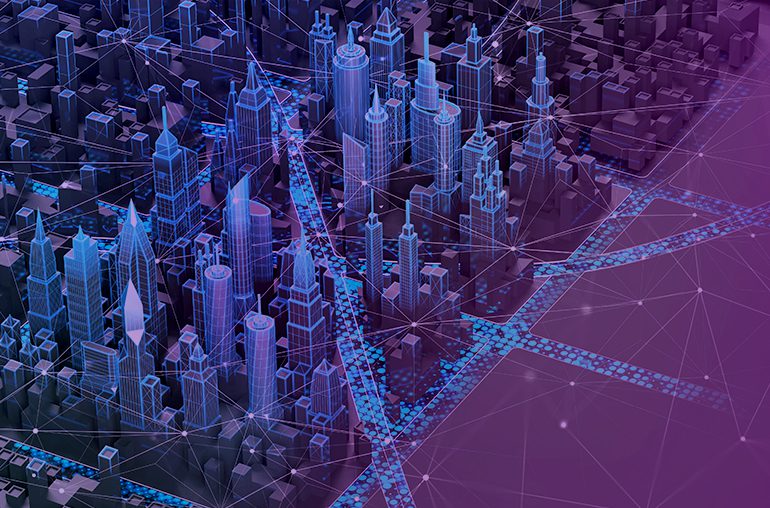
When you consider the fact that 89% of the U.S. population (and 68% of the world population) is projected to live in urban areas by the year 2050*, the need for smarter, more efficient technologies to help these areas manage city-wide operations is becoming more and more critical. There is a lot of talk right now about the coming 5G network expansion, wireless sensors, IoT, and smart city initiatives – but how to distinguish the hype from actionable, sensible strategies? And how to find a reliable smart city partner with the experience and services to meet all of your connectivity, compliance, security and scalability concerns?
Intelligent sensors: the core component of any smart city project
Most city governments by now realize the main motivation behind any smart city initiative – which is to collect and utilize real-time location and activity data to significantly reduce operating costs, and allow municipalities to make the most efficient use of their resources. Intelligent sensors are the technology that makes this kind of real-time connectivity possible, and are the foundation for any smart city project.
But there are multiple elements to consider: the types of sensors and controls that are needed, whether hardware devices and operating systems need to be upgraded in order to interface with them, data security, device management, to name a few. Smart city development planners are looking for partners with the experience and technology resources to help them meet these requirements, especially knowing that they will inevitably evolve over time.
Here are four essential “must haves” to look for when considering and evaluating a smart city project partner:
1. A single provider for all smart city technology needs
Smart city development planners will quickly get frustrated if they’re juggling different data plans, different applications, multiple hardware providers, multiple networks, and receiving bills for all of these services from a variety of vendors. Aside from being an accounting challenge, logistically it will quickly become a management nightmare. Scheduling various installations and training sessions, maintenance, and constantly wondering whether these tools and interfaces are compatible with each other – who needs these hassles? Finding a single vendor that can manage all of these moving parts of your smart city initiative avoids an awful lot of stress and headaches.
2. Demonstrated success with smart city initiatives
There have been a number of successful smart city development efforts in both major metropolitan areas (such as the City of Phoenix) and smaller municipalities around the world that are already demonstrating the ROI and cost-saving benefits of these deployments. Make sure that the vendor you choose to work with has demonstrated success in implementing and managing intelligent sensor networks and IoT solutions for city governments, and can quantify the results in areas such as:
- Fleet management: operational costs reduced, fuel savings, routes optimized, system uptime improvements
- City-wide infrastructure: distributed sensors to provide collection data points for traffic lights, parking meters, water levels, and in-building functions such as inventory, panic buttons and temperature monitoring.
3. A hassle-free way to access, manage and analyze your data
Most smart city projects involve the deployment of sensors, location-tracking devices and other hardware (routers, etc.), all pushing out data in real-time from all over the grid. You must have access to an intelligent, easy to use software platform that can help you make sense of the information you are collecting. Tracking costs, maintenance, status of devices and workers, performance and inventory are all critical to your success—but can quickly become overwhelming without the right platform in place to display the data and generate the reports you need to analyze the results with clarity and accuracy.
4. Adopt smart city technology at your own pace, to meet your own needs
Finally, it is crucial to work with a smart city project partner that has the technical resources and knowledge to work with your existing hardware, software and IT protocols. You should never have to be constrained to one particular network, device format or operating system—the best IoT and connectivity vendors will provide the flexibility to work with your existing tech ecosystem. In addition, you should be able to dictate how you would like to access your data—whether it be via a customized API, mobile apps, cloud-based software platforms, etc.
* United Nations (UN) Population Division (2018), “World Urbanization Prospects: The 2018 Revision.


